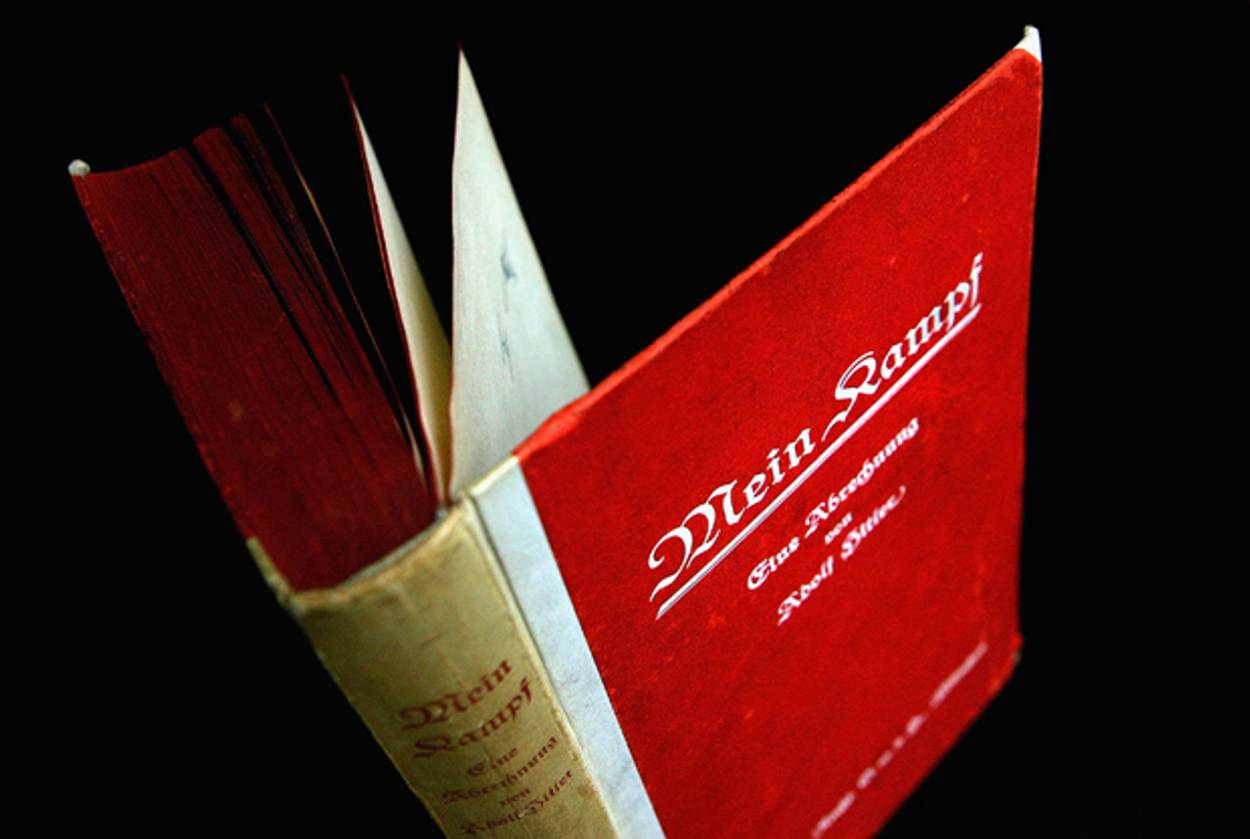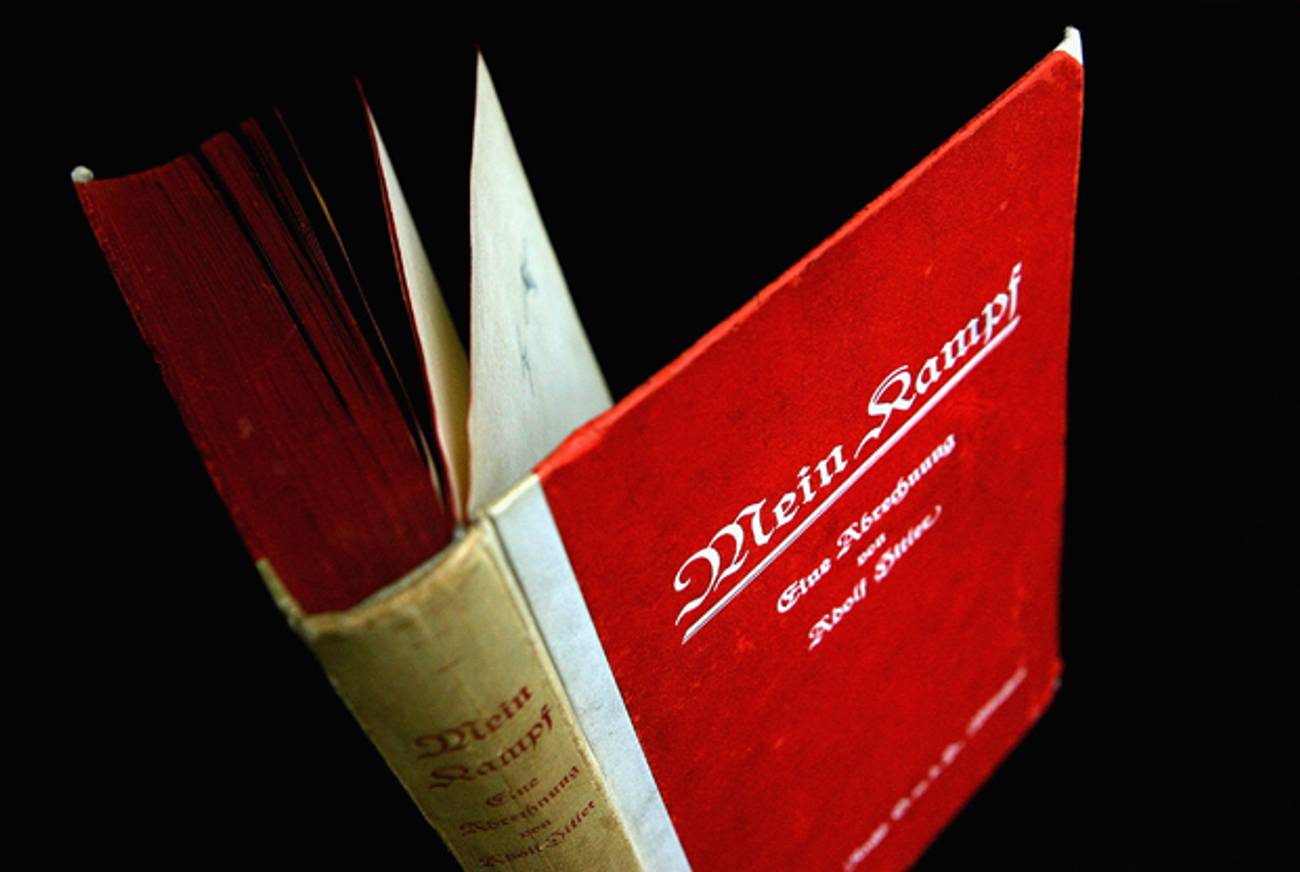Read Abe Foxman’s Introduction to ‘Mein Kampf’
As the book’s 2015 copyright expiration looms, it’s time to discuss its legacy




Last week the Internet buzzed with the news that Mein Kampf, the manifesto written by Adolf Hitler in 1925 following a failed bid for power in Munich, had become an astonishingly popular e-book selection. One version is the number one selection in Amazon’s Propaganda & Political Psychology section. Yikes.
One of the strangest parts of the book, we pointed out, is how clearly and unequivocally Hitler proclaimed his intentions to eliminate the Jews from the German Reich. He wasn’t exactly being coy about his plans. Still, while the book has merit as a historical item, its new wave of popularity is certainly troubling.
Mein Kampf’s copyright—owned by the state of Bavaria—expires in 2015, before which there will likely be much discussion about the book’s future—as well as its legacy. Adding to that discussion are many Jewish voices, some of which may surprise you. Back in 2010, German Jewish groups applauded a planned republication of the book by a Munich-based organization, saying they hoped for “an aggressive and enlightening engagement with the book.”
Strange as that may sound, they’re not the only ones trying to turn the book into an educational tool. ADL National Director Abe Foxman himself wrote the introduction to the book’s 1998 English translation by the Mariner Books imprint of Houghton Mifflin, in which he argues for the book’s continued place in society, though not for its historical accuracies or even for its insight into Hitler’s own life (“At best, then,” Foxman writes, “Mein Kampf is unreliable as a source of historical data, though useful, perhaps, to professional historians who have the ability to detect its lies, omissions, and half-truths”). And not even as a window into Nazi ideology or his genocidal plans, neither of which are fully articulated in the book. It’s because we simply can’t ignore it or brush it aside as the ravings of a fanatic, as many people did at the time. According to Foxman, “Mein Kampf’s existence denies the free world the excuse of ignorance.”
Herein lies perhaps the most important lesson we can take from Mein Kampf. Its shortcomings seem obvious; its atrocious style, puerile digressions, and narcissistic self-absorption should be clear even to the casual reader, Its theories are extremist, immoral, and seem to promise war and catastrophe if taken seriously. But somehow this book and its author were embraced by a civilized nation and its lunatic plan was actually put into effect. Mein Kampf seems absurd, even comical in places; its program of ultra-nationalism, racism, and territorial expansionism, its fascistic disdain for democracy and human rights, seems to caricature itself at times — yet this book was given to every newly married German couple from the late 1930s onward. If we read this ridiculous tract while keeping in mind the history surrounding it – the frenzied Sieg Heils, the mass rallies, the racial indoctrination, ultimately the barbarism and genocide that it inspired — we may begin to attain a historical perspective on the period. A window to a world different from ours may open for us.
You can read the full introduction here. So what do you think—is Mein Kampf a potentially useful educational tool or a dangerous reminder of the Fuhrer’s ultimate goal? And do you agree, as Foxman argues, that we must accept its existence and give it whatever attention it may therefore be due?
Stephanie Butnick is chief strategy officer of Tablet Magazine, co-founder of Tablet Studios, and a host of the Unorthodox podcast.